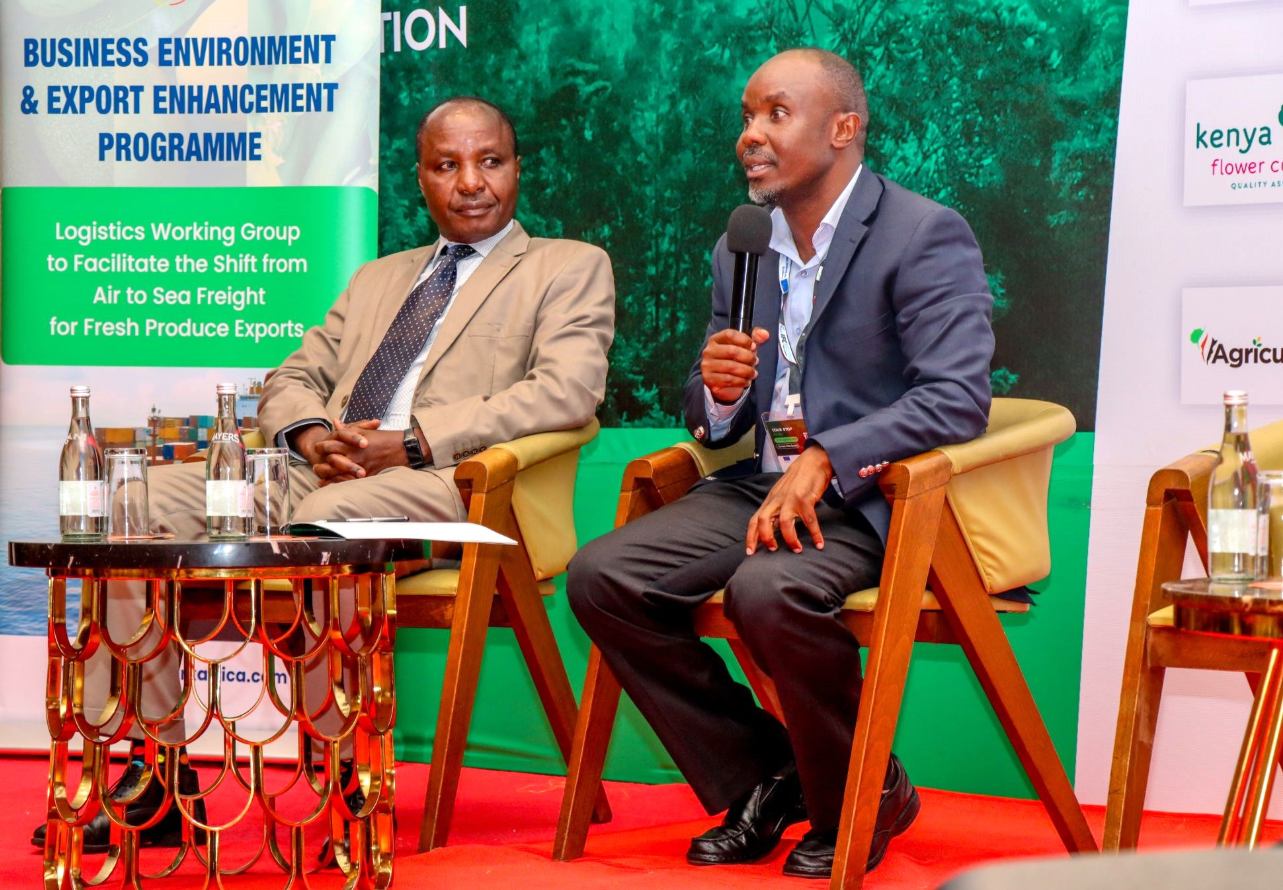 Pest Control Products Board (PCPB) CEO Fredrick Muchiri and Eric Kimunguyi, CEO of AAK-GROW/Croplife, answer questions from participants.
Pest Control Products Board (PCPB) CEO Fredrick Muchiri and Eric Kimunguyi, CEO of AAK-GROW/Croplife, answer questions from participants.Kenya is stepping up efforts to regulate
pesticide use and eliminate unsafe products from its agricultural supply chain,
as emphasized during the GLOBAL G.A.P. Tourstop 2025 event held in Nairobi. The
conference, themed “Driving the Region’s Agri-food Trade Through Compliance and
Product Diversification,” convened farmers, regulators, and industry leaders to
address pesticide safety and trade standards.
Fredrick Muchiri, CEO of the Pest Control Products
Board (PCPB), reaffirmed the government’s commitment to public health and
environmental protection. “Since withdrawing more than 200 pesticide products
from the market, we have intensified surveillance at entry points and markets
to ensure they are neither manufactured, imported, nor used in Kenya,” he said.
Earlier this year, the government banned 77
pesticide products and imposed strict controls on hundreds more. Muchiri
clarified that these decisions remain in force and that Maximum Residue Limits
(MRLs)—the highest permissible pesticide residue levels—are trade standards,
not safety indicators. He stressed that differing MRLs across regions do not
imply health risks for users.
To enforce these measures, PCPB has deployed
trained officers at border points and agrovets, supported by the Directorate of
Criminal Investigations (DCI). Two DCI officers are stationed at PCPB’s
headquarters to assist with investigations and arrests related to counterfeit
products. Muchiri added that border personnel are being trained to identify
fake pesticides and take legal action against offenders.
Despite logistical challenges, particularly at
porous borders like Loitokitok, PCPB reports a 70–80% reduction in the
circulation of banned products. Remaining cases are largely linked to
cross-border agrovet shops operated by traders from neighboring countries.
These shops have been supplying restricted products to Kenyan farmers,
especially those growing tomatoes and maize.
To counter this, PCPB has launched public
awareness campaigns and leveraged digital platforms to educate farmers on safe
pesticide use. The board’s capacity has also been boosted by a new laboratory
at its headquarters, enabling advanced analysis of pesticide formulations and
faster enforcement.
Eric Kimunguyi, CEO of aak-GROW/CropLife Kenya,
highlighted the evolving nature of pest control in response to climate change
and crop diversification. “New pests and diseases are emerging, and we must
train and certify Spray Service Providers (SSPs) to support county staff in
guiding farmers,” he said.
Kimunguyi warned against withdrawing pesticide
products without offering viable alternatives, cautioning that this could push
farmers toward unsafe, black-market options. He noted that Kenya is close to
eliminating highly hazardous pesticides (HHPs) thanks to sustainable practices
and innovations such as drone-based application and protective gear for service
providers.
Both CEOs emphasized the need for harmonized
pesticide regulations across East Africa to prevent illegal trade and ensure
consistent standards. The East African Community’s Pesticides Management
Guidelines aim to standardize testing and registration of both conventional and
biological pesticides, improving access to safe and effective products for
farmers.
As Kenya continues to lead in pesticide regulation,
stakeholders agreed that balancing food safety, environmental sustainability,
and market access will require science-driven policies and stronger regional
collaboration.












